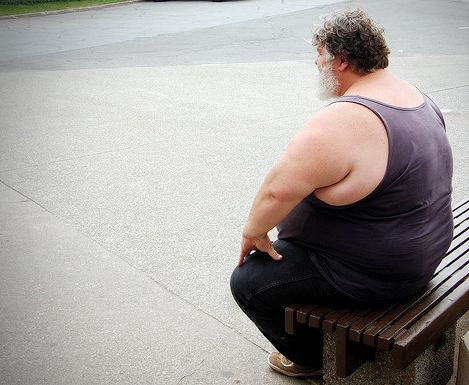70 percent of prostate cancer patients on ADT gain significant weight in first year

Seventy per cent of men who received androgen-deprivation therapy (ADT) after surgery to remove their prostate gland gained significant weight in the first year, putting on an average of 4.2kg, according to a paper in the March issue of the urology journal BJUI.
Researchers studied the recorded weights of 132 men who underwent radical prostatectomy between 1988 and 2009 at four US Veterans Affairs Medical Centers in California, Georgia and North Carolina, before and after they received ADT.
This showed that the majority of the men gained significant weight during the first year of therapy, but did not put on any more weight after that.
"ADT is a hormone therapy that deprives the patient's body of androgens, such as testosterone, which have been shown to stimulate the growth of prostate cancer cells" explains Dr Stephen J Freedland, from the Duke Prostate Center at Duke University School of Medicine and the Veteran Affairs Medical Center, Durham, North Carolina.
"Having been established as the mainstay treatment for recurrent or secondary prostate cancer, ADT is now being increasingly used to treat localised disease.
"This rising use of ADT makes it even more important that we pay close attention to the side-effects of the therapy, including weight gain, as obesity is linked with a number of chronic and potentially life-threatening health problems."
Dr Freedland teamed up with colleagues from four other US states to carry out the study, using data from the Shared Equal Access Regional Cancer Hospital database. Patients were included if there was sufficient information to track their weight before and after the use of ADT.
The average age of the men included in the study was 66 years, 50 per cent were white, 42 per cent were black and eight per cent were from other races. Their average Body Mass Index before starting ADT was 29. The men's weight was measured a median of 33 days before and 363 days after the start of their ADT therapy.
Key findings of the study included:
* 70 per cent of the men gained weight, 26 per cent lost weight and four per cent stayed the same. The men who put on weight gained an average of 4.2kg, while the men who lost weight lost an average of 2.4kg. The total weight gain averaged across all of the 132 men in the study was 2.2kg or 2.4 per cent of their body weight.
* Data covering the year before ADT and the second year after ADT was available for 64 per cent of the men. This showed that most of the significant weight gain took place in the first year after ADT therapy started. Their overall weight gain averaged 2.1kg in the first year, with no change in the second year.
* Weight gainers and losers did not differ in any demographic, clinical or pathological respects.
"Despite its clinical efficacy in advanced prostate cancer, ADT is associated with an array of adverse side-effects such as insulin resistance and increased risk of cardiovascular disease" says Howard Kim, a medical student at Duke University School of Medicine and first author of the study.
"A growing number of studies show that men receiving ADT undergo a shift in body mass composition, gaining weight by increasing body fat and losing bone density and lean muscle mass.
"The most notable finding of our study is that any significant weight gain tends to occur in the year after ADT therapy begins and then stabilises after that. Previous studies have tended to concentrate on the short timeframe immediately after ADT is initialised, whereas much of our data covers a three-year time-span. This has enabled us to provide a clearer picture, not only of how much weight patients can gain on ADT, but when any significant weight gain occurs."



























